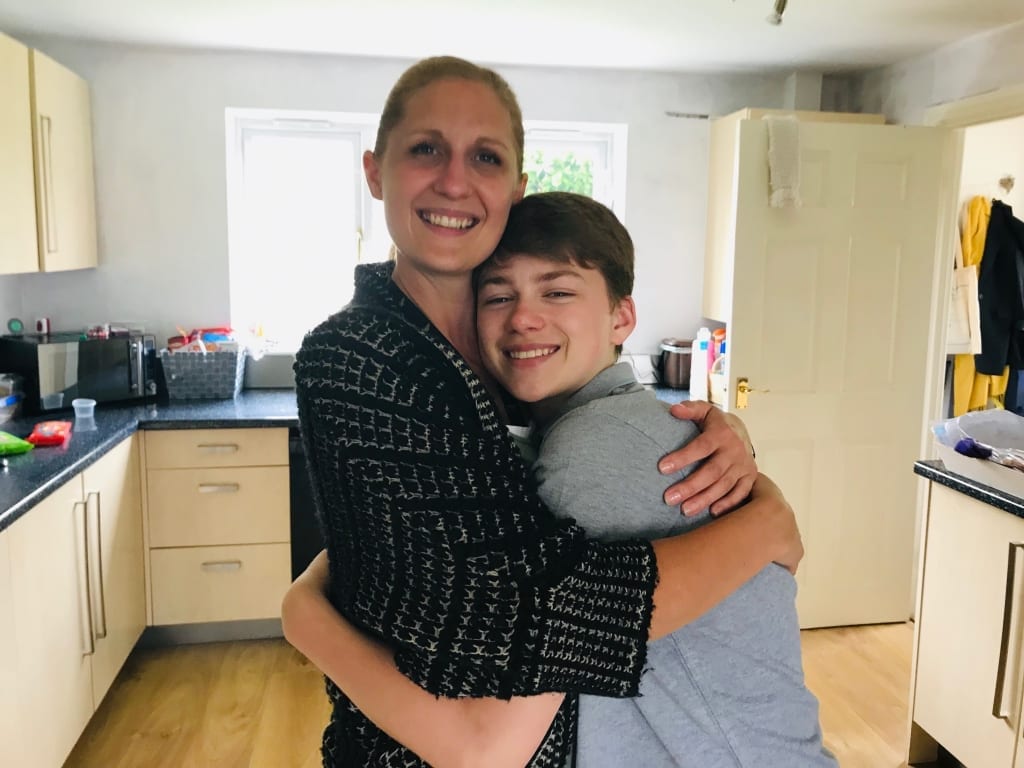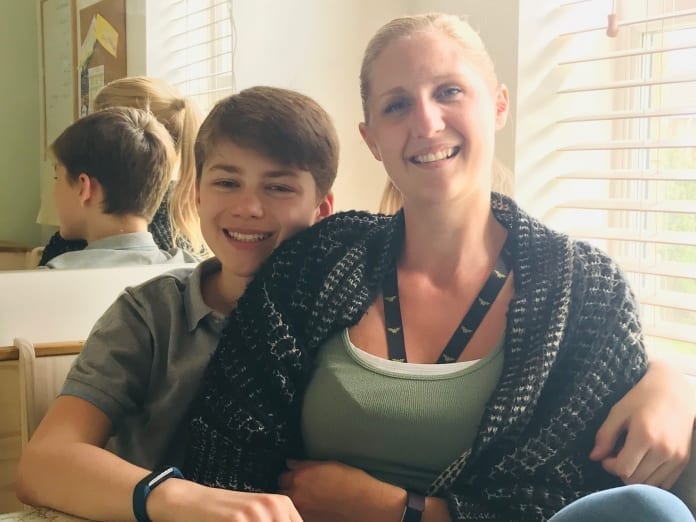• Landmark survey reveals three generations of families across Wales and the UK fear childhoods are getting worse
• In its 150th year of helping children, Action for Children warns of an emerging childhood crisis, with young people across the UK facing unparalleled social pressures
Action for Children is warning of a crisis emerging in modern childhoods, as a major survey today reveals children, parents and grandparents fear childhoods are getting worse. As the charity celebrates its 150th birthday, it is calling for a National Childhood Strategy to tackle this crisis.
Action for Children with YouGov explored the biggest issues affecting childhood today through comprehensive research across three UK generations. The research, involving discussion groups and a quantitative survey of 5,000 children and adults UK-wide, showed the majority of grandparents (62%), parents (60%) say childhoods today are getting worse with one in three children (34%) agreeing.
In a boosted survey to respondents in Wales, the majority of Welsh grandparents of children aged 11 to 18 (60%) and parents (57%) say childhoods today are getting worse with a third of the Welsh children surveyed (32%) agreeing.
Bullying is the major obstacle in Wales to having a good childhood with majority of children (62%), parents (65%) and grandparents in the survey (73%) citing that. Other issues that stop children having a good childhood today include fitting in and looking a certain way (children 54%, parents 65%, and grandparents 54%). Time spent on electronic devices and social media is also a big concern across all three generations. (children 37%, parents 61%, and grandparents 71%)
With politics in turmoil, 89% of Welsh children surveyed, say they are worrying about ‘adult issues’. These included Brexit (33%), while over half of Welsh children (54%) surveyed are worried about poverty and homelessness, closely followed by fears over terrorism (46%). The environment (48%) and issues surrounding inequality (such as sexism and racism – 38%) also came out as key worries for youngsters surveyed.
With the UK’s most vulnerable youngsters hit hardest by the growing childhood crisis, Action for Children is launching a new campaign today called ‘Choose Childhood’ as it marks its 150th year.
Action for Children’s national director for Wales, Brigitte Gater said:
“It’s Action for Children’s 150th birthday and our research shows there is so much more work to be done in the face of a chronic lack of investment from the UK government. In Wales, we lobby and work with Welsh Government on all issues affecting our children and there is a genuine commitment to improving children’s lives across the board despite a very tight financial climate through Flying Start, Families First and the Future Generations Act.
“It’s crucial in this era of intense fiscal pressure that the focus on early intervention and mental health is consistent and redoubled. Our three generational survey shows that children today, far from being carefree, are struggling under the weight of social pressures, global turmoil and unprecedented levels of mental health issues. We must ensure that Welsh Government and local authorities continue to Choose Childhood and urge the next Prime Minister to properly fund children’s services, stop punitive benefit changes and end the austerity agenda that has proved so harmful to our children and young people right across Wales and the UK.”

Welsh Case study
Oliver (13) from Bridgend, is supported by Action for Children’s Bridgend Young Carers service as he helps his mother, Hayley, look after his younger brother who has Autism and Pathological Demand Avoidance profile (PDA). Hayley worries about the impact of social media and how it can drive bullying and bring ‘adult issues’ into children’s lives. She also worries, as a full-time carer for her son, how people and conditions require labels like never before when diagnosing and assessing conditions. Even with a label like ‘young carer’ Oliver has faced bullying and exclusion at various times in school.
Oliver said: “It is hard with social media and peer pressure to look perfect and fit in. Being a young carer has also meant I haven’t been able to do everything people in school do and it can be isolating. There’s been bullying in the past but now the pressure to well at school and the need to act or look a certain way are the main causes of stress for me outside of my caring role.
“The support Action for Children has given me through the young carers service has helped me have some respite from caring for my brother. Being with young people who have similar issues and understand what you’re going through is really good. I’ve made some really close friends through Bridgend young carers.”
Hayley said: “As a full time carer, I cannot work and this impacts on the kids at school. They can’t have the phones and devices the other kids take for granted. There is a sense of entitlement in children today because of the technological advances and if you can’t be part of that, it can make life very difficult. Social media ensures it doesn’t stop at the school gate, it’s 24 hours a day with no release from it. Kids do bring home fears about all sorts of issues and again social media heightens these fears.
“There is also a problem with the labelling of children whether it’s diagnostic or a status such as ‘young carer’. The need to be labelled conveniently means there are gaps in assessment and treatment and we’ve had to battle very hard to get the right diagnosis and treatment for Oliver’s brother. The commitment in Wales to deal with children’s issues such as mental health is there but there needs to be more investment across the board as there’s still too much firefighting adults in crisis. We should be investing in mindfulness training, conflict resolution, mental health and life skills for children.”

| [donate]
| Help keep news FREE for our readersSupporting your local community newspaper/online news outlet is crucial now more than ever. If you believe in independent journalism,then consider making a valuable contribution by making a one-time or monthly donation. We operate in rural areas where providing unbiased news can be challenging. |

















